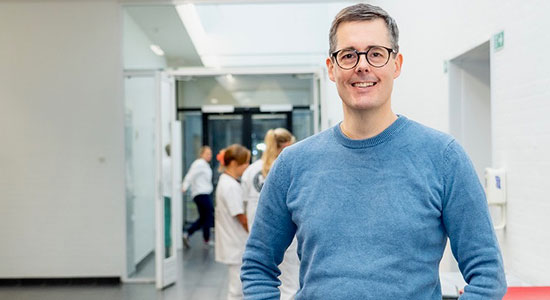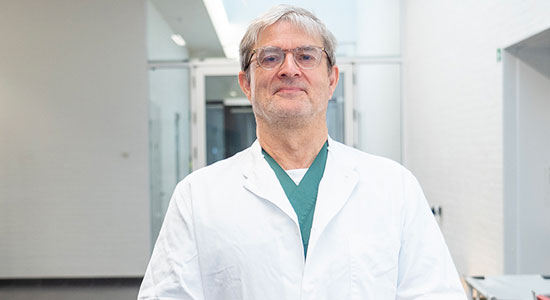Click here to read the curriculum in the course catalogue.
Course code: SCAM25001U
The purpose of this course is to provide the students with theoretical and practical tools to perform rational diagnostic work-up and clinical decision-making, and to extend the participants knowledge, personal skills and competences within the discipline of companion animal surgery.
The course will provide the students with theoretical and practical competences within the fundamentals of good surgical practice as it relates to first opinion companion animal practice – in particular Halsted’s principles of surgery, atraumatic tissue handling, aseptic preparation of patient and team, and the problem-oriented and evidence-based background for decision making in companion animal surgical procedures.
The course provides the student with a set of tools to assess the outcome of surgeries in general and to establish, perform and develop a continuous quality-assurance program in particular.
As part of the responsibilities of the companion animal surgeon the course emphasizes the importance of a systematic approach to, and management of, emergency surgical patients, animal pain perception, and individually-tailored anaesthetic and analgesic management.
This course is only available for students enrolled on the Surgery specialisation track.
Read more about the specialization tracks and the Master's programme on the main page:

James Edward MilesProfessor MSO |

Thomas EriksenAssociate Professor |
Course dates
27 April - 2 May 2026
The course is available every second year.
Examination
Please find dates and details about the exam in the exam schedule.
Having completed the course, the student must be able to:
Knowledge
Skills
Competences
This course is only available for students enrolled in the Surgery specialisation of Master of Companion Animal Clinical Science.
Visit the Surgery page.
You must meet the following criteria to be admitted to this course:
Read more about admission on the main page of Master of Companion Animal Clinical Science.
EU/EEA citizens*
33,500 DKK
Non-EU/EEA citizens
38,800 DKK
*Citizens of the EU, EEA or Switzerland is entitled to a subsidised tuition fee, due to EU legislation, hence the difference in price.
University of Copenhagen
University Hospital for Companion Animals
Dyrlægevej 16
1958 Frederiksberg
Denmark
Christine Gulstad
Study Administration Officer
lifelonglearning@adm.ku.dk
Tlf: +45 35 32 12 73